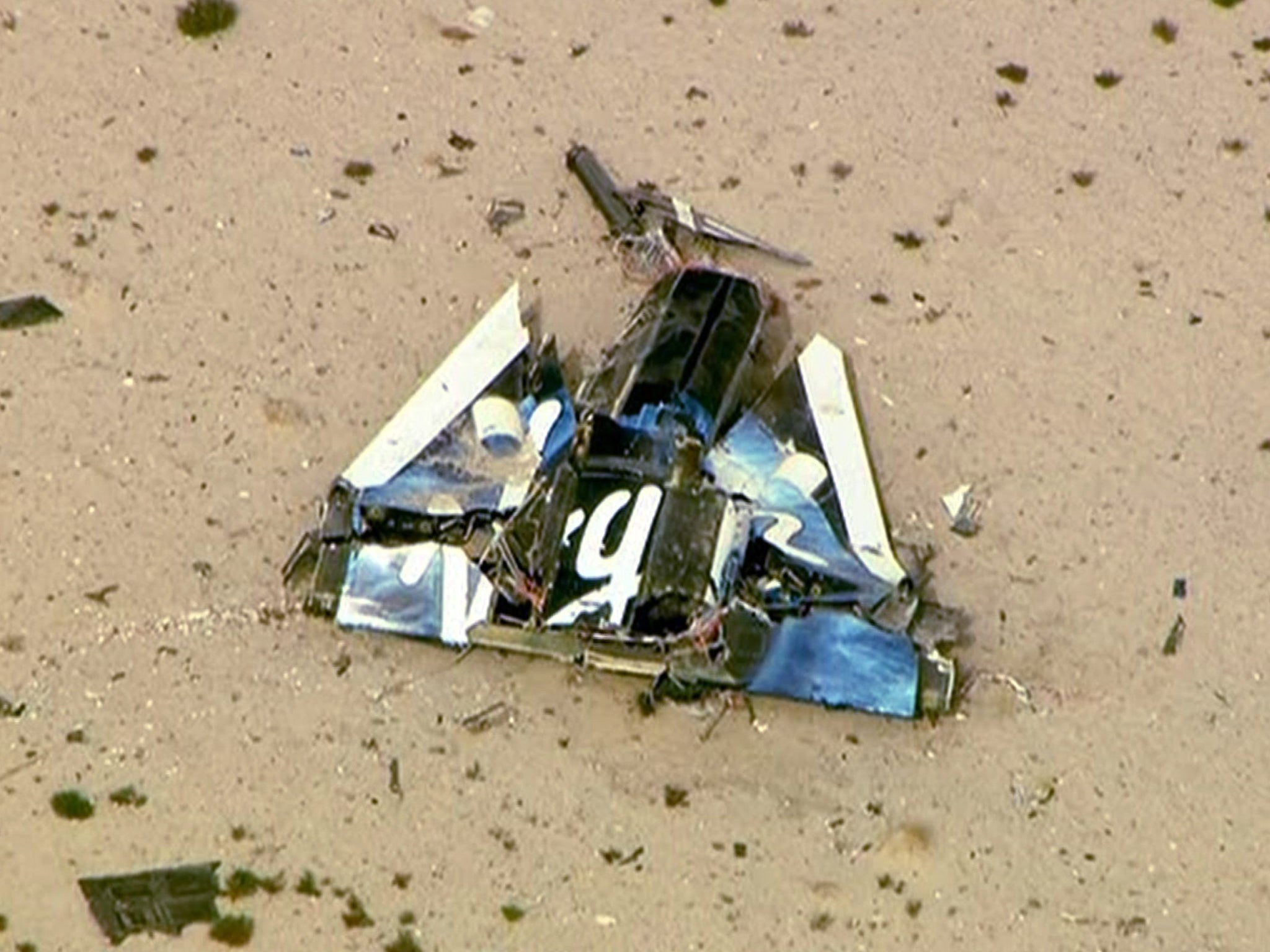Virgin's dashing journey into the future now faces tough questions
Earlier this year Branson confidently declared the inaugural flight would take place this year and that he intended to be on it with his children

Your support helps us to tell the story
From reproductive rights to climate change to Big Tech, The Independent is on the ground when the story is developing. Whether it's investigating the financials of Elon Musk's pro-Trump PAC or producing our latest documentary, 'The A Word', which shines a light on the American women fighting for reproductive rights, we know how important it is to parse out the facts from the messaging.
At such a critical moment in US history, we need reporters on the ground. Your donation allows us to keep sending journalists to speak to both sides of the story.
The Independent is trusted by Americans across the entire political spectrum. And unlike many other quality news outlets, we choose not to lock Americans out of our reporting and analysis with paywalls. We believe quality journalism should be available to everyone, paid for by those who can afford it.
Your support makes all the difference.A few weeks after failing in his bid to become the first person to circumnavigate the world in a balloon in 1997, Richard Branson announced even more ambitious plans to travel into space.
He wanted not just to go there himself but to be the first private individual to put paying passengers into orbit and beyond.
When he first revealed his plans he said he thought space tourism could be just a decade away, a deadline which has repeatedly slipped. But while the timetable has proved unreliable he has kept faith with his dream and, in keeping with his background as a rich adventurer, to be one of the first to reach space.
Earlier this year he was confidently declaring the inaugural flight would take place this year and that he intended to be on it with his children.
He is not the only entrepreneur dreaming of carrying fee-paying passengers towards the heavens. Competitors include XCOR Aerospace which wants to make space travel “affordable for private citizens”. Astrium, owned by European Aeronautic Defence and Space Company, intends to fly a plane 62 miles above the Earth carrying four passengers each flight.
Branson set up Virgin Galactic in 1999 when the likely date of the first commercial flight was set at 2007, but practical problems have been constant issues.
As the crash of SpaceShipTwo demonstrates – as does the explosion which destroyed Obital Sciences’ Antares rocket earlier this week – space travel is a dangerous occupation.
Nevertheless, Branson and others remained optimistic and in 2005 Virgin Galactic began accepting bookings and deposits for space flights. However, doubts about space tourism have repeatedly been voiced, not least by those who question the ethos of an industry that will be a plaything for the rich unless costs can be dramatically reduced.
“I think it’s a real setback to the idea that lots of people are going to be taking joyrides into the fringes of outer space any time soon,” said John Logsdon, retired space policy director at George Washington University.
“There were a lot of people who believed that the technology to carry people safely was at hand.”
In an interview earlier this year Branson said he recognised the problems Nasa had with getting astronauts back alive: “Nasa has lost about 3 per cent of everyone who’s gone into space. For a government-owned company, you can just about get away with losing three per cent of your clients. For a private company you can’t really lose anybody.”
But he has faced criticism. Tom Bower, journalist and unflattering biographer of the Virgin mogul, questioned how realistic the entrepeneur’s hopes were and earlier this year said of the rocket: “It just isn’t working. Where’s the evidence he can make it work in the next six months?”
Join our commenting forum
Join thought-provoking conversations, follow other Independent readers and see their replies
Comments